Affiliate disclosure: This post may contain affiliate links. Please see our Privacy Policy.
Dandelions are medicinal, who knew!?! Every part of the dandelion plant from the flower to the leaves and even the root are both edible and medicinal.
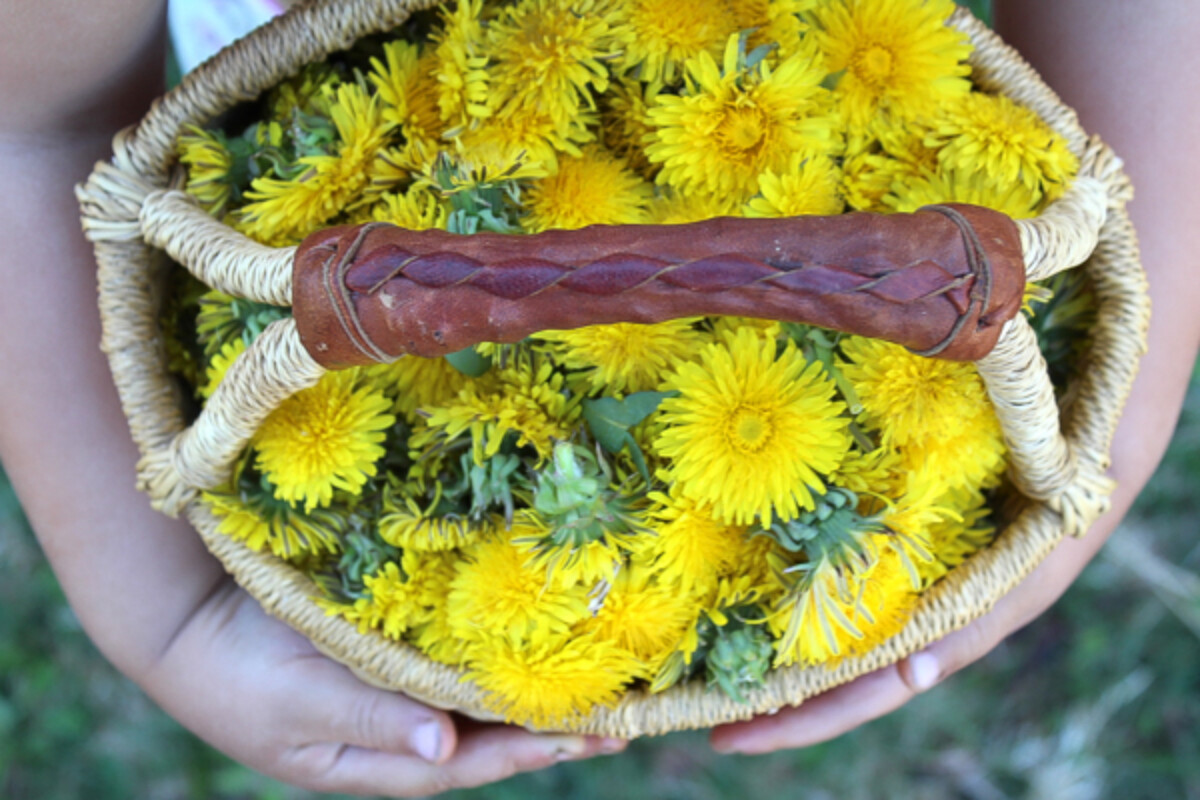
Table of Contents
- Dandelion Medicinal Properties
- Promotes and Stimulates Digestion
- Heals Minor Skin Injuries
- Liver Support
- Female Health
- Reduces Inflammation
- Balance Blood Sugar
- 7 Dandelion Medicinal Uses You Can Try
- Make a Poultice for Sores
- Treat UTIs with Dandelion Tincture
- Try Dandelion Coffee as a Diuretic
- Make Dandelion Tea for Digestion Problems
- Make Dandelion Infused Oil for Chapped Skin
- Make Dandelion Salve for Aching Muscles
- Make a Cough Syrup
- Dandelion Uses
Dandelions are one of my favorite medicinal flowers that appear in the spring and summer, and they’re incredibly prolific. There can be literally millions of them per acre, and on our 30 acres we could harvest day and night and not dent the dandelion population.
Each spring, we pick a few baskets of flowers, leaves, and roots for homemade medicine, and still leave plenty for the bees.
I can’t let them go to waste now that I know all of the dandelion medicinal uses!
Dandelion Medicinal Properties
Dandelions are a versatile, useful medicinal flower that can be used to treat a variety of ailments. From digestion problems to chapped skin, dandelions are the answer, and best of all, they reappear in your yard for months for free. You don’t have to do anything to grow them; they’re an invasive weed in most areas.
All parts of the dandelion plant are edible and contain different nutrients. The leaves and roots contain vitamins A, C, K, and B and minerals like potassium, calcium, iron, magnesium, and zinc. Years ago, dandelion greens were regularly served as a food source, and the roots are safe to roast as a coffee substitute or tea.
Aside from being nutritious, dandelions contain a range of medicinal properties, and each part of the plant has different medicinal actions.
(Be aware, I’m not a doctor, and I don’t claim to have any certifications that would qualify me to advise you on your health. Always check with a doctor before trying any new remedy, herbal or otherwise.)
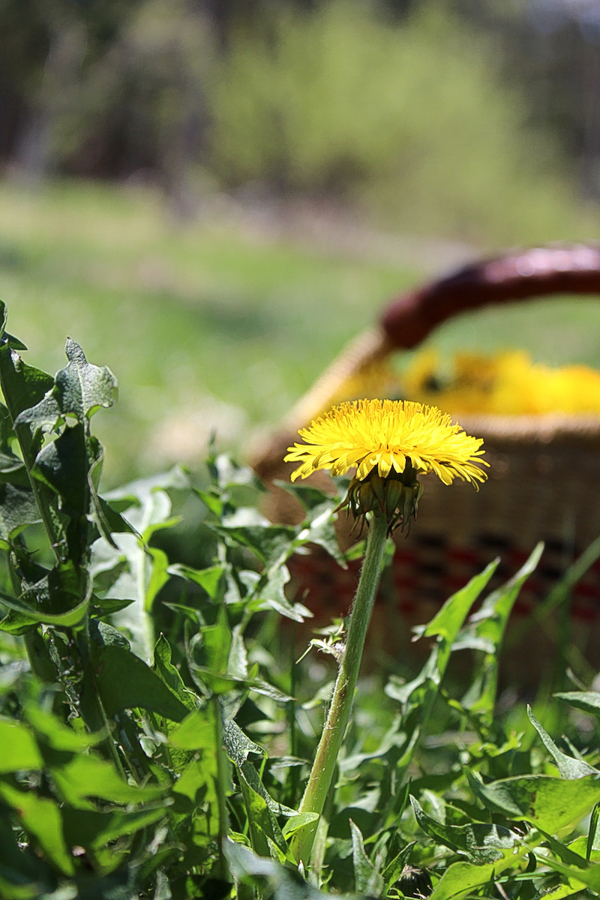
Promotes and Stimulates Digestion
Dandelions are a mild laxative that encourages proper, healthy digestion while stimulating your appetite and balancing bacteria in your intestinal tract. If you have indigestion problems, taking dandelion can help to ease the discomfort.
Some studies show that dandelions help increase Lactobacillus and Bifidobacterium, two of the most common species of bacteria found in probiotics that are well-associated with gut health. Instead of taking daily probiotics, you can add dandelions to your daily health regime as well. It might help with problems like bloating and gas, common problems that happen when you have digestion problems. (Source)
The roots are the best part for digestion, and you can cook whole dandelion roots like carrots. When the roots are cooked their fibrous exterior slips off, leaving a tender interior that’s good with a bit of butter and salt.
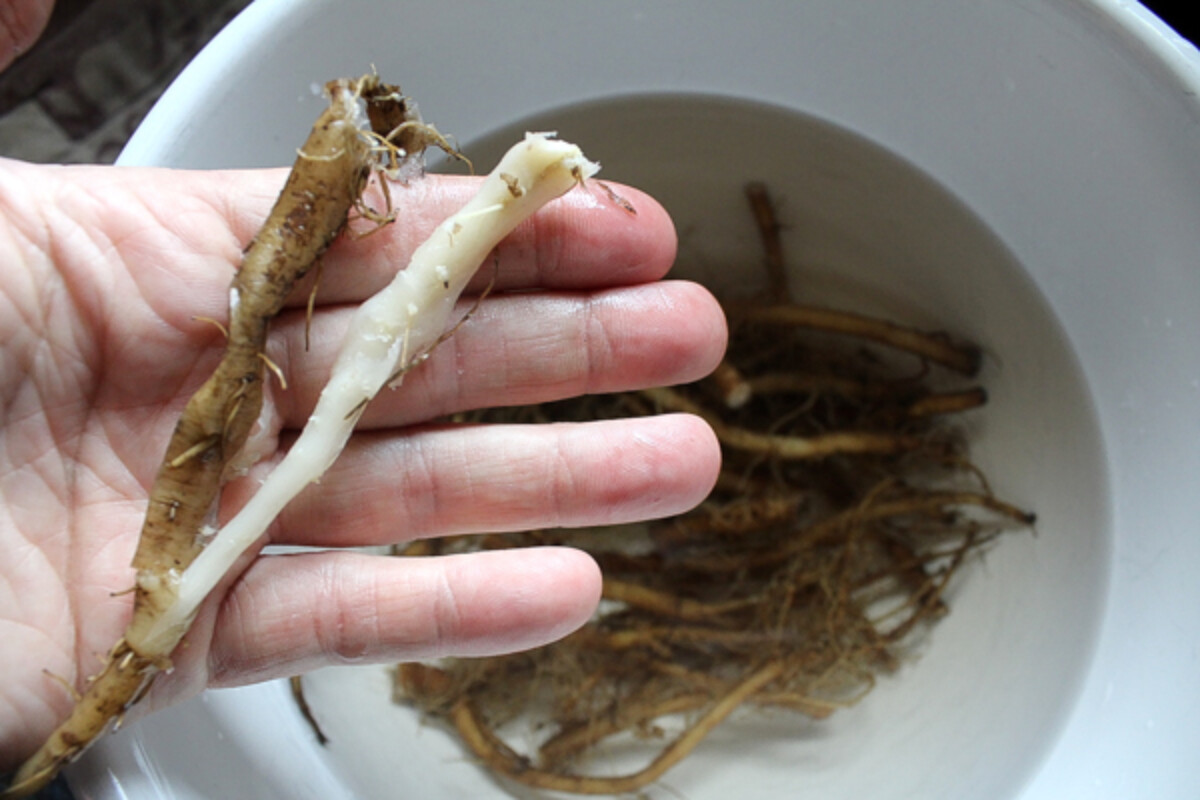
Heals Minor Skin Injuries
Dandelions are known for healing minor skin injuries like cuts, scrapes, and minor burns. It helps skin regenerate while nourishing and moisturizing chapped and dry skin. It’s the perfect combination, and since it’s believed to combat infections, you can use it in place of triple antibiotic cream.
Generally, the flowers are used for skin issues, and the most common preparation is a simple dandelion-infused oil. (Learn how to make an infused oil from any plant here.)
Liver Support
Different cultures used dandelions to support a healthy liver. We know that Native Americans boiled dandelions in water and used it to treat liver problems and upset stomachs. Traditional Chinese medicine used this herb to treat stomach problems and appendicitis.
Animal studies suggest that dandelion roots might reduce or prevent diet-related fat accumulation in the liver. This is a great find because it might be able to control non-alcoholic fatty liver disease. (Source)
Both the root and leaves are used for liver support. The leaves can simply be eaten as a dandelion salad, or used to make dandelion pesto. Roasted dandelion root tea/coffee and dandelion root tincture are the most common medicinal preparations for the root.
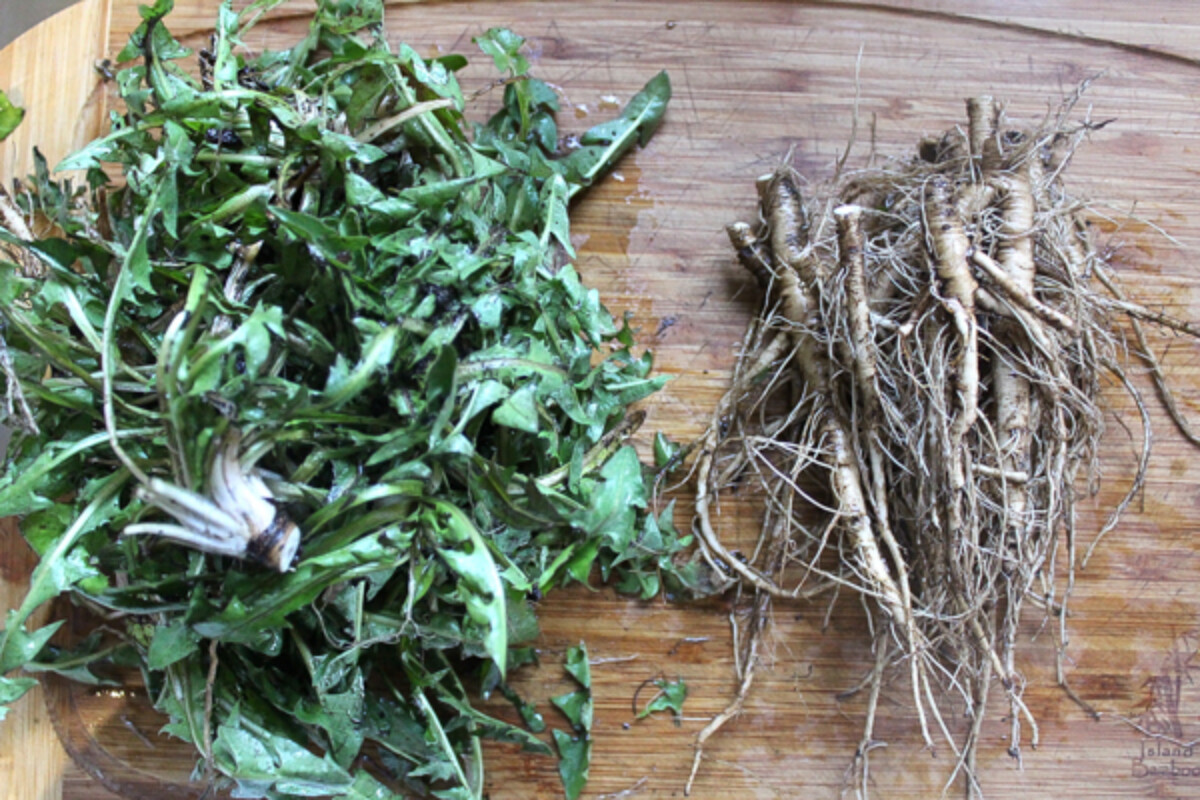
Female Health
Hormonal imbalances lead to various problems for women, and dandelions contain different nutrients that support your body’s natural detoxification system. If you suffer from hormonal issues, urinary tract infections, and recurrent mastitis, dandelions can potentially help treat all of these problems.
It’s believed that dandelions help reduce inflammation, a problem during mastitis, and treat infections. That’s why it’s an excellent herb for abscesses.
Also, since dandelions are a natural diuretic that helps to flush excess body water out of your kidneys and bladder, this herb helps to relieve fluid retention and bloating associated with PMS. (Source)
Studies regarding dandelion for female health were done on the leaves and roots.
Reduces Inflammation
Dandelions contain a number of phytochemical compounds that may have anti-inflammatory properties. It’s believed that dandelions may decrease inflammation throughout the body.
Studies suggest that inflammation treated with dandelions is significantly decreased. While more research is needed to decide the true extent of this medicinal benefit, it’s clear that using dandelions if you have inflammation issues could be potentially beneficial. (Source)
Balance Blood Sugar
Some early studies suggest that dandelions might help balance blood sugar levels and lower your total cholesterol levels. It also raises HDL cholesterol, which is good!
Some studies suggest that dandelion roots have anti-diabetic properties like enhancing insulin secretion and reducing hyperglycemic events. (Source)
7 Dandelion Medicinal Uses You Can Try
Now that you know the medicinal properties of this flower, here are a few dandelion medicinal uses that you can try at home.
Make a Poultice for Sores
If you have boils or sores, chop up some dandelion root and leaves to make a poultice to apply to the affected area.
Treat UTIs with Dandelion Tincture
Taking a dandelion tincture helps to support healthy liver and kidney function. One of the best reasons to use this tincture is to treat UTIs because it’s a gentle diuretic, encouraging your body to urinate more.
Take a look at my article on how to make a dandelion root tincture. It’s easier than you imagine; I prefer to use the roots and then toss the greens into a salad.
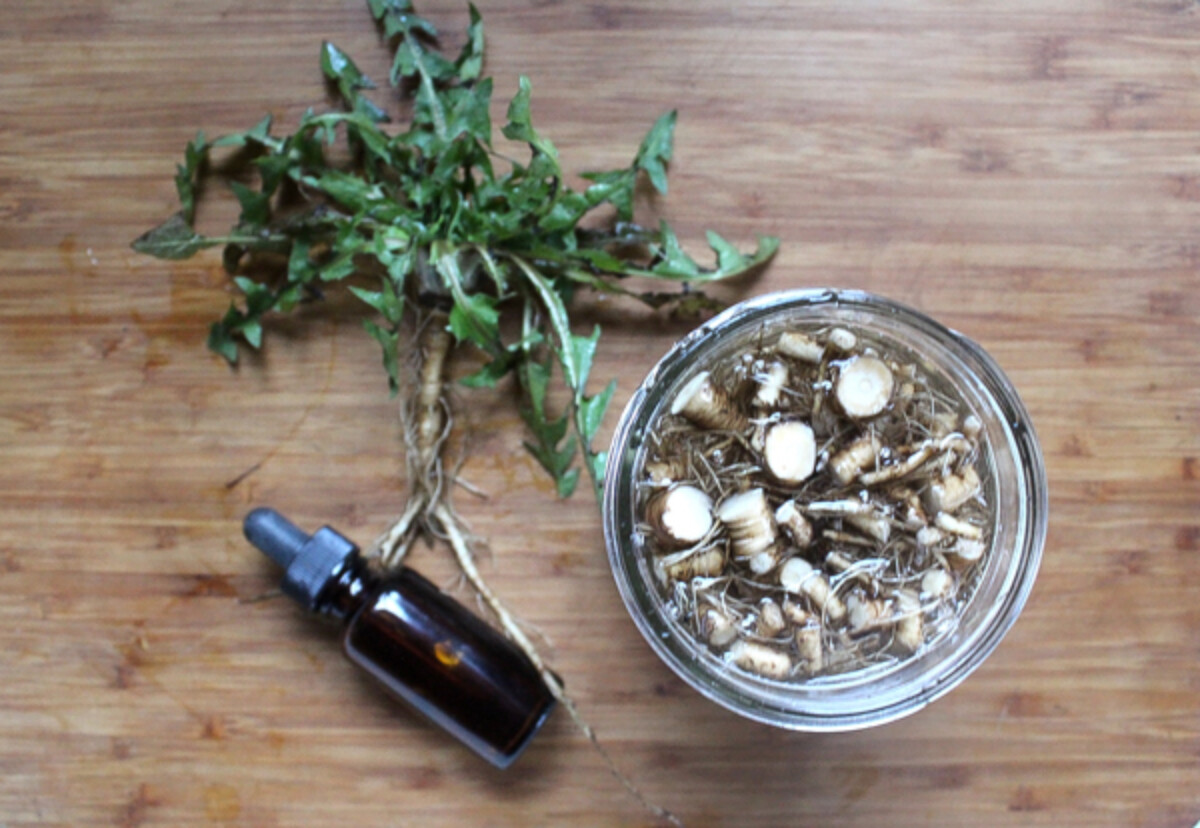
Try Dandelion Coffee as a Diuretic
Dandelion roots are frequently used as a coffee substitute. It’s a natural diuretic, and if you need to increase urine production, this would be a great dandelion medicinal use.
Surprisingly, dandelion coffee tastes like coffee without some of the bitterness. It has rich, earthy tones that I enjoy, especially with a bit of maple syrup. It’s made more like tea, and it’s free to make if your yard is full of dandelions. You should give it a try.
I wrote an article about how to make dandelion root coffee – make sure you check it out.
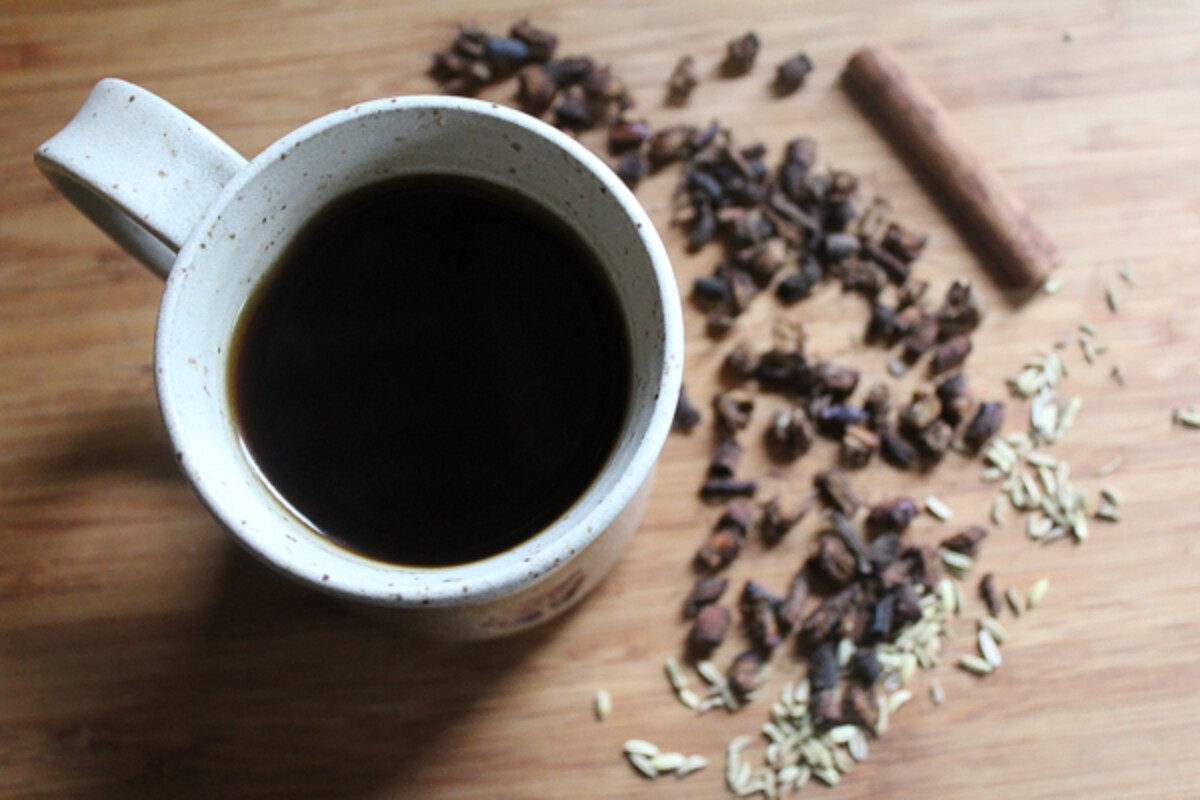
Make Dandelion Tea for Digestion Problems
Instead of root coffee, you can make dandelion tea with the flowers and leaves. Dandelion tea is excellent for easing digestive problems like bloating, gas, and general stomach discomfort. It also helps with PMS symptoms like fluid retention and cramping.
Dandelion tea helps with secondary symptoms like acne and constipation. The recommended dosage is one to three cups per day, starting with one cup and working your way up because dandelions have laxative and diuretic properties. It’s essential to give your body time to adjust.
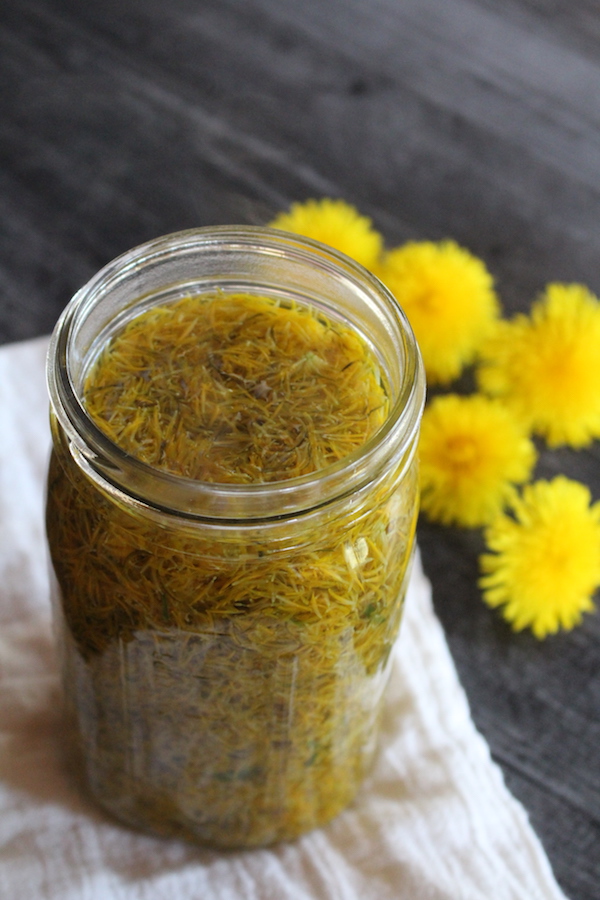
Make Dandelion Infused Oil for Chapped Skin
Dandelion-infused oil is a versatile product that you can apply to dry and chapped skin, make other products, or use as a massage oil for aching and sore muscles. Without infused oil, you won’t be able to make a dandelion salve, which is perfect for aching muscles.
I like to use dandelion oil on minor cuts and scrapes.
Make Dandelion Salve for Aching Muscles
Once you have dandelion-infused oil, making salve is easy. It’s made with beeswax and shea butter. If you have sore, aching muscles, dandelion salve helps ease discomfort because of the anti-inflammatory properties that dandelions have.
A dandelion salve is also great for chapped and dry skin. The ingredients are nourishing and healing, plus it smells great.
Take a look at how to make a dandelion salve.
Make a Cough Syrup
Dandelions have anti-inflammatory, antiviral, and antimicrobial properties, making them the perfect addition to cough syrup. This cough syrup uses other herbs. Remember, you can combine herbs to find the perfect mixture to treat the problem you have.
I found this great homemade cough syrup using dandelions and plantain.
Dandelion Uses
Looking for more great ways to use dandelions? These tasty dandelion treats may not be strictly “medicinal,” but they are pretty darn tasty!
- Dandelion Jelly
- Dandelion & Honey Marshmallows
- Dandelion Gummy Bears
- Dandelion Cookies
- Homemade Dandelion Wine Recipe
- Dandelion & Honey Ice Cream
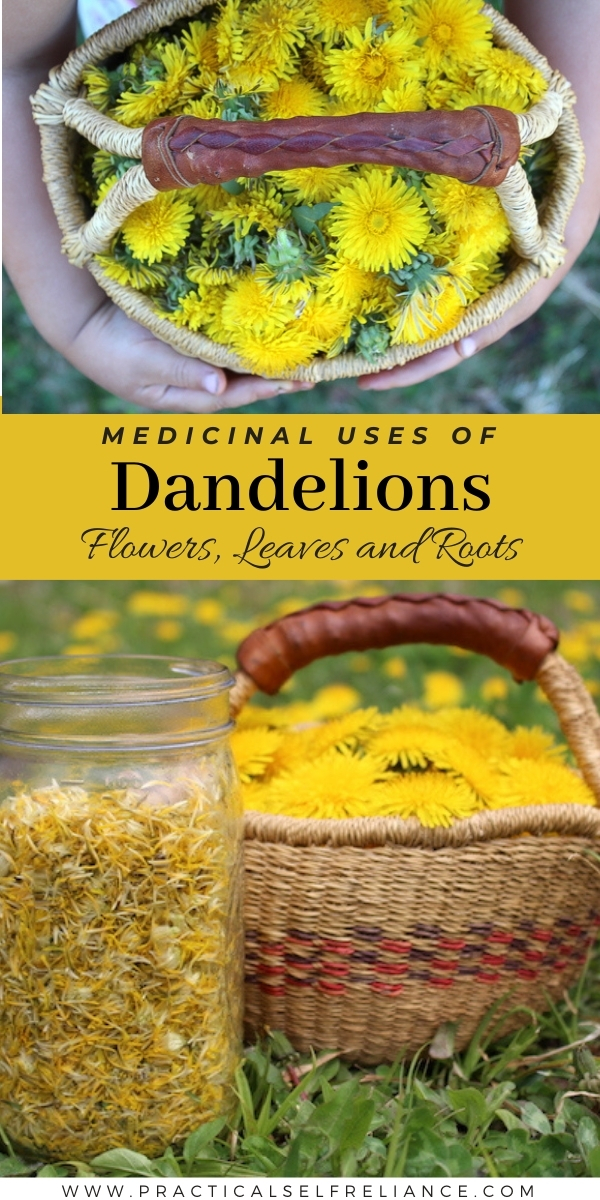
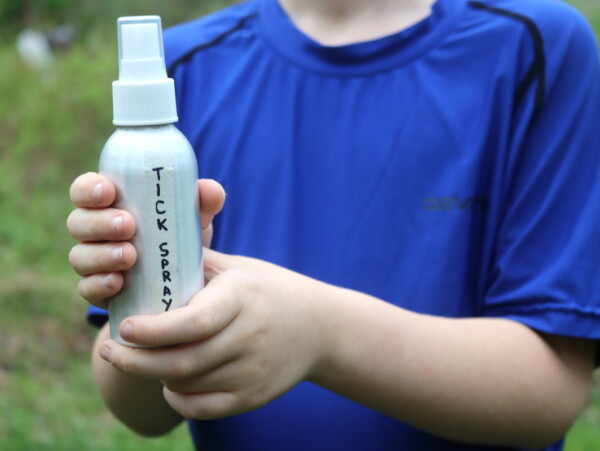
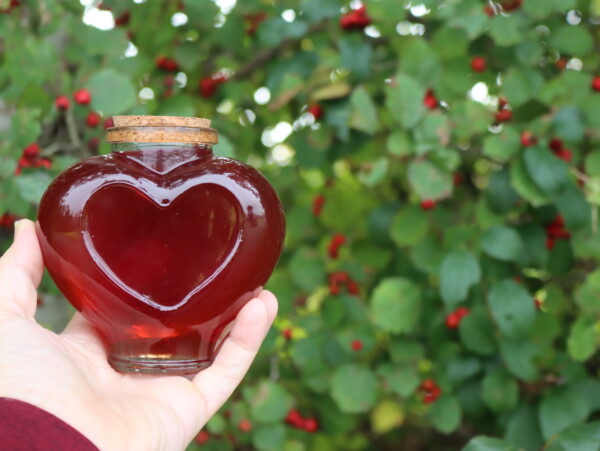
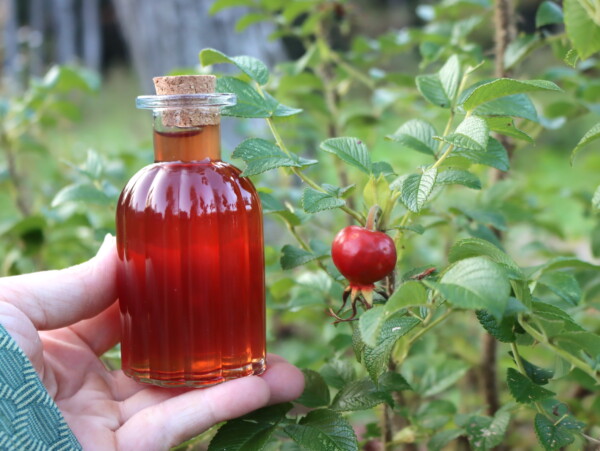
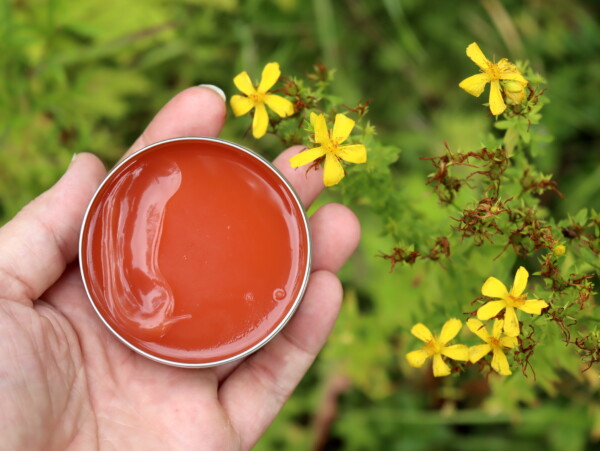







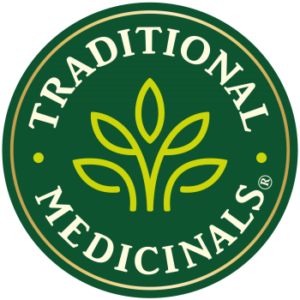


Great article. I’d like to know how long do these things stay good for? Particularly using dandelions (just the roots right?) for coffee and the oil infused mixtures for salve? Any idea when these expire? Thank you!
They really don’t expire. If you dry the roots really well, they should last a long time. Keep in mind that the fresher they are, the better. I would harvest enough to get you through to the next harvesting season and then harvest some more. The oils will last as long as the oil stays good. Oils will go rancid after a period of time depending on the oil used and their storage. Just be sure to keep them in a dark, cool place.
Wonderful work!
Great idea to use for healing skin. I make a salve for skin using a blend of herb. I never thought about adding dandelion blooms and they are so prolific and available! I will be adding them in my next batch. I can pick now and dry for future use. Thanks for the info!